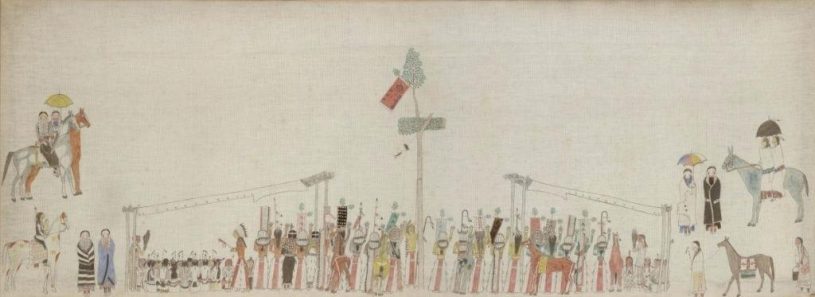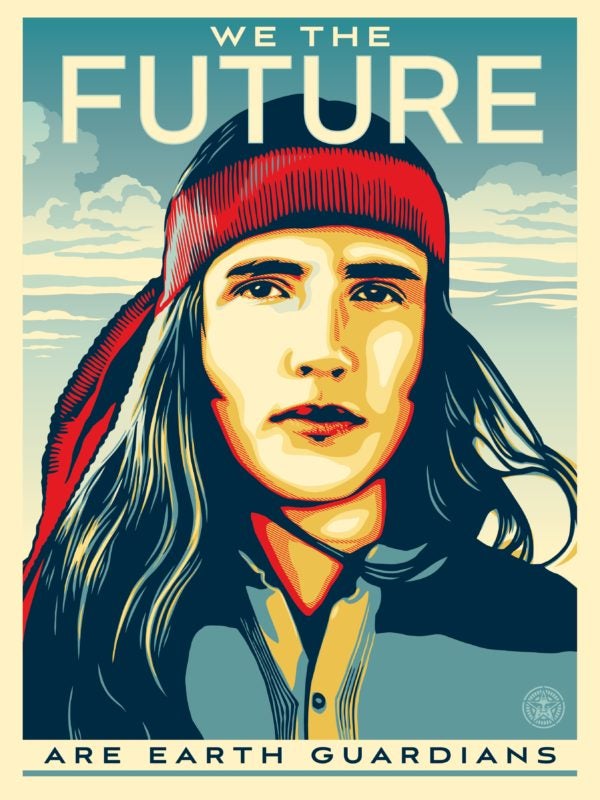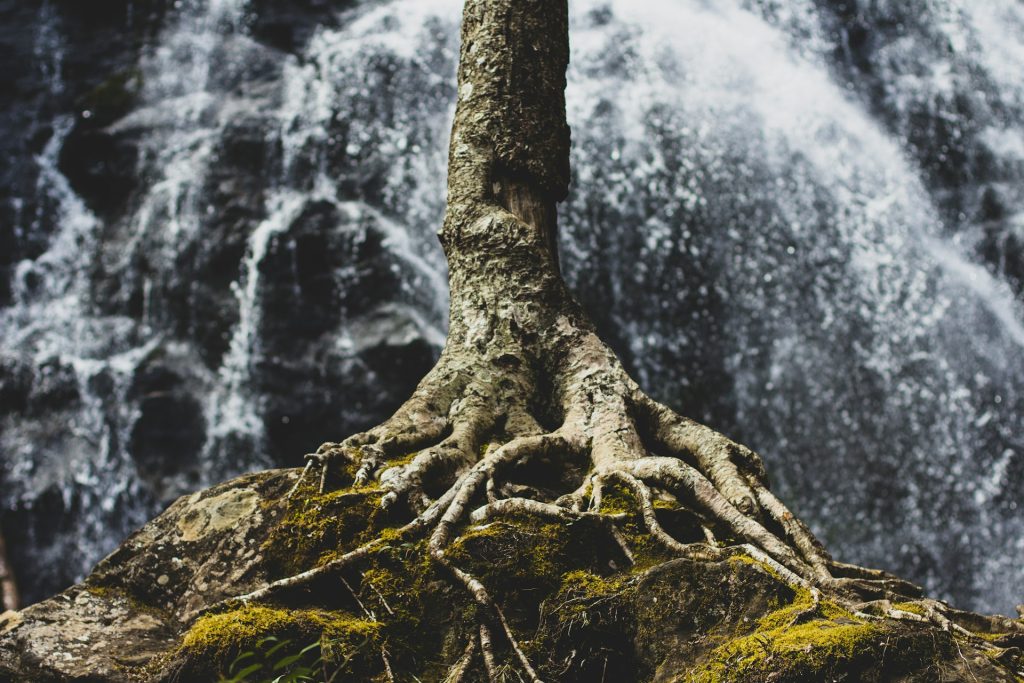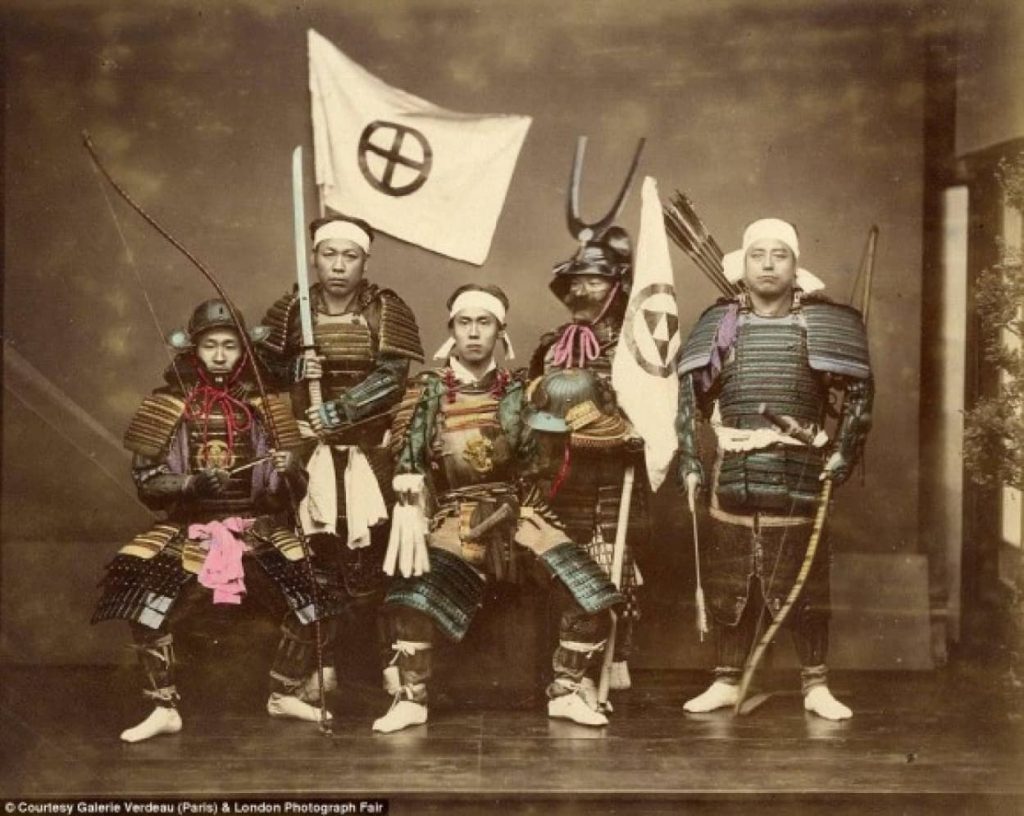White Men and Native America
“We will have to repent in this generation not merely for the vitriolic words and actions of the bad people, but for the appalling silence of the good people…I am thankful…that some of our white [sisters and] [1] brothers have grasped the meaning of this social revolution and committed themselves to it.” – Reverend Dr. Martin Luther King, Jr. [2]
Over the last forty years, the North American men’s movement has increasingly looked to indigenous ways of living for wisdom and guidance. Today, the influence of earth-based practices is gaining even more traction among many men’s groups. Organizations, such as the Mankind Project, Sterling Men’s Institute, EVRYMAN and Menschwork, which were started by “white men” are increasingly using practices from Native American traditions in their retreats and groups.
I am choosing to use quotation marks for “white men” because the five racial categories used by the US census bureau [3] date back to 1676 in the American colonies. Before that time, race was not an agreed upon categorization tool for human identity – on this continent or anywhere else in the world.
Heather McGee, a recognized thought leader on the national stage and Senior Distinguished Fellow, at Demos, a dynamic “think-and-do” tank that powers the movement for a just, inclusive, multiracial democracy, speaks to this essential historical context in a recent podcast on Bioneers. [4] She says:
“Racism is not inevitable. In fact, the very idea of racial categories didn’t take root until the seventeenth century. It’s important to remember, because so much of this history has been suppressed, just how important to the American economy racism was – and slave labor that took place on plantations on land that was expropriated from Native American nations. That is our economy.
The invention of “whiteness” dates back to 1676 in the Virginia colony, which was then a corporation of the British crown. European indentured servants and African slaves joined forces to rise up against the ruling class. At that time, whites and blacks lived and worked together, intermarrying and raising children, interracially. There was more racial contact then, than there is now. Called Bacon’s Rebellion – it was quite successful, causing the elites to experiment with ways to divide and conquer.
They tried religion, language and place of origin before they stumbled upon race, and retaught the “white” indentured servants to identify with the “white” elites and to police the non-whites. They created a new identity that hadn’t existed before.”
This historical context may come as a surprise to you, as it was for me. I am deeply grateful to Heather McGee for making me aware of the explicit invention of race as a category to identify human beings in our country, for the specific purpose of economic exploitation. The categorization of race was a distinct act with a divide-and-conquer political agenda – to establish and maintain separation, domination and exploitation of slave labor on stolen land.
From this ground of clear understanding, we can move forward and acknowledge that racial categories do not speak to our personal relationship to time or place. We all come from somewhere. My ancestors were Jews who fled the pogroms [5] in the Ukraine about a hundred years ago. My great-grandfather was a tailor who built a better life for his family after the trauma of persecution in his homeland. My ancestral heritage is distinct from “white” people who came here from England, France, Germany, Poland, Italy, Greece or other parts of Europe. Every individual and family’s journey is unique. Simply put, racial categories strip away the humanity in our unique identities.
All that being said, here in the United States of America, in 2019, as a political being, I am seen as a white man. I am categorized as a white man; and therefore, I receive the benefits and privileges of being considered a white man in a racialized society in which “white” has more status than other racial categories.
With this awareness, I am doing what I can to take responsibility for this role that I find myself in, here and now, in the United States of America. Today, I believe that men who receive the benefits of being seen as “white” have a responsibility to work towards undoing white privilege. As Reverend Dr. Martin Luther King, Jr. wrote in his Letter from a Birmingham Jail, it is not enough to be a progressive who says nothing. And, I would add that it’s not enough to say that you would rather live in a society that has equality. It is time for us to stand together, acknowledge our brutal history as Americans, and actively work to dismantle and transform the systemic racism that permeates our society.
I feel a personal desire to take responsibility to acknowledge and transform our heritage of systemic racism in the United States because of the deeply personal benefits that I have received from the native cultures of North and South America, Africa and Asia. In a very real sense, I owe my life to people who generously invited me to participate in particular ceremonies that strengthened my resolve in past struggles with depression, illness and loss of hope.
I’ve been involved with men’s work for over twenty years, and have been walking a path of Native American spirituality for fifteen years. Two years ago, I began a four-year commitment to participate in the Lakota Sundance Ceremony on the Rosebud Reservation in South Dakota.

Receiving the opportunity, responsibility and privilege, -as a white man – to participate in this most sacred cultural ceremony has transformed my life for the better. I intend to continue Sundancing for the foreseeable future, and to begin pouring sweat lodge ceremonies once I complete my training, as is expected of Sundancers, in order to serve their community.
I felt called to write this article after attending two weekend men’s retreats that both used Native American spiritual practices and words. At the first retreat, a sweat lodge was used, and in the second retreat, the word aho [6] was invoked. I left those retreats with a strange feeling in my gut – a sense that something essential was not said – an opportunity was missed.
I am not here to point my finger at anyone. I am just another “white guy” on the path of growth and healing. My intention in writing this is to point my finger in the direction of where I sense we can go together. These practices, and words have been passed down, taken care of, and protected. They come from somewhere. My sense is that we would grow as men if we took the time to better acknowledge this history – together.
Inspiring Examples Already Underway
We, as a men’s movement, are poised to deeply transform our identity by consciously choosing to stand with all people. I am suggesting that it would serve our growth to join the movement of truth, repentance, forgiveness and reconciliation that is already underway. For example, in 2019, the Ceremony of Repentance and Forgiveness created a sacred space for descendants of U.S. military families to apologize to Native American families for their specific role in the genocide of indigenous people, as well as those whose ancestors survived crimes against humanity, such as massacres, mass execution, displacement, colonization, enslavement, cultural genocide and the Nazi Holocaust. The ceremony, led by a Lakota elder, “created an opportunity for healing profound and old wounds of both the perpetrator and the victim that have been sustained throughout hundreds of years of occupation of this land known as Turtle Island and beyond.” [7]
Another example of a forgiveness ceremony took place during Standing Rock, the international demonstration of solidarity to protect our water. A US military veteran asked for forgiveness from Native American chiefs. [8] I highly recommend watching the two-minute Youtube video. Here is what he said:
“We came. We fought you. We took your land. We signed treaties that we broke. We stole minerals from your sacred hills. We blasted the faces of our presidents on your sacred mountain. And then we took still more land. And then we took your children. And then we tried to take your language. We tried to eliminate your language that God gave you and the Creator gave you. We didn’t respect you. We polluted your earth. We’ve hurt you in so many ways. And we have come to say that we are sorry. We are at your service and we beg for your forgiveness.” [9]
In response to this request for forgiveness, a Lakota Chief responded with this:
“Let me say a few words of accepting forgiveness. World peace. World peace! We will take a step. We are Lakota sovereign nation. We were the nation, and we’re still a nation. We have a language to speak. We have preserved the caretaker position. We do not own the land. The land owns us.” [10]
The Invitation
What if we, who are doing men’s work and finding value in these practices, such as sweat lodges, using sage for purification, and saying aho, as a way of acknowledgement, collectively chose to stand in alliance with Native America, as well as all indigenous people, people of color, women, all living beings and the natural world.
What if we, as an alliance of men’s organizations in North America, initiated a collective dialogue with Native American community leaders for the purpose of getting real about our bloody history, and moving in the direction of truth, reconciliation and doing our best to make things right? What might be possible if we moved, together, in this direction?
This is the invitation that I see, for us, as a men’s movement in America:
- Let’s become more aware of, interested in, and connected to these movements
- Let’s do our own work as “white men” in America, with each other, so we are more aware of our own relationship to the privileges that we experience in our society that is systematically racist.
- When we are ready to do so, let’s initiate dialogue and intentional relationship-building with people of color and native community leaders, so we can look at these issues together.
- Let’s share our story, and by doing so, invite and encourage others into greater participation in this dialogue.
- And, finally, as we naturally establish a substantial degree of trust in these relationships, let us organize our resources and skills towards systems-level programs that foster and support truth, repentance, forgiveness, reconciliation, racial equality, cultural regeneration and socio-economic revitalization for communities who have suffered at the hand of systemic racism.
Opening this clear, straight-forward dialogue with Native communities establishes solid ground for honest and good relationships to grow.
Now What?
In taking this stand, I have been able to put down a huge burden – the burden of living the lie that I am better than everyone else because I’m white. I’m not. And the dehumanization that we have visited on the rest of humanity through the global imperialist project over the last five hundred years has greatly diminished our own sense of belonging, compassion, and care for all living beings.
Writing these words is setting me free. I no longer need to hide the obvious truth that we live on stolen land and our wealth was built on the backs of stolen labor. And yet, a small voice in the back of my mind sometimes asks, where is this taking me? What will be asked of me? And, will I be able to rise to the occasion and meet the challenges ahead? I’m grateful that these questions are being met by a deeper voice that tells me integrity has its own rewards. I know that I am living a more honest life, even by writing this article.
Alliance for a Viable Future is sponsoring this initiative because we believe change moves at the speed of trust. Therefore, in order for us, as one human family, to co-create a viable future for generations to come, we must build it on a foundation of honesty, integrity, and trust. Trust requires telling the truth.

Youth leaders of the next generation are already speaking up [11] with clarity, boldness and courage, about the urgent need to transform our society. As white men we have the responsibility to hear them and the opportunity to consciously lead by example as good role models for our children.
By publicly acknowledging that the founding of our nation began with genocide and slavery, and that our ‘wealth’ is a result of stealing and bloodshed, we are grounded in reality. Only by acknowledging the truth of our past can we stand on solid ground, and walk into the future together.
What if we wrote a collective statement to express our solidarity?
What if we, as a men’s movement in America acknowledge the wrongs of our ancestors and present-day national policies and social norms towards Native people, in North America and around the world?
What if we decide to give thanks for the many traditional teachings and practices that Native America culture has contributed to the men’s movement?
What if we express our solidarity with Native American leaders and communities with a declared commitment to mobilize our collective resources in service to the renewal of their cultural practices, community resilience and civil rights within North American governments?
And, what if we extend this same solidarity to all “people of color” because we want our collective future to foster cultural respect, dignity and flourishing; economic justice, fairness and equality; and honesty about our unspeakable past?
A Proposed Public Statement might look something like this:
As citizens who receive the privileges of being considered white men in the North American and global political economy, we are aware of the responsibility and opportunity to contribute to the evolution of our social and cultural norms in the direction of respect, dignity and well-being for all people and all living beings.
We now understand that we must bow our heads in humility, and extend our greetings, thanks, respect, and dignity to those whose lands were stolen in order to establish this United States of America. We are speaking to you – the Native American peoples, tribes and nations of North America. We acknowledge the heinous crimes of our ancestors and current policies towards your communities, and we now see that it is our responsibility to not only acknowledge these wrongs through our words, but to use the tool of our privilege as white men in this political economy in order to bring about systemic change in our country.
We also humbly address the African American people of this country, acknowledging that the growth and development of our wealth as a nation came on the backs of your ancestors, brought here as slaves, kidnapped from your families, communities, and lands in Africa, and brought here under brutal, unthinkable conditions, against their will.
We acknowledge the systemic oppression of all people of color in this country. We acknowledge the system which denies equal resources of all kinds, including housing, education and health care to people of color. Over the last four-hundred years, our country has exploited “people of color” for the benefit of the white population.
We acknowledge that the white men who came to Turtle Island and committed genocide against the Native people, established a racist, patriarchal social hierarchy. We thank God they did not succeed in complete genocide, and will never succeed.
We also acknowledge that white men who have wealth and power have exploited other white men who did not have wealth and power in similar ways. And, we acknowledge that this system of social, economic, political and environmental exploitation and oppression is still actively at work today, all around the world.
As men who participate in men’s groups, we see ourselves as a men’s movement that stands for an end to the dominance of a patriarchal society and the beginning of a new identity for American white men in the twenty-first century. May our great-great-grandchildren look back upon us, and say that we were the generation that said – enough! We refuse to be complicit in the inhuman behavior of our preceding generations.
We see an opportunity, responsibility and privilege to reconcile, heal, transform and renew the relationship of white America with Native America and all people of color. And, through this effort, we see an opportunity to redefine what it means to be a white man, from here on out.
This new identity is rooted in a commitment to do our best to live in ways that protect and steward life, and thus we are dedicated to:
- Acknowledge the sins of our ancestors, for attempting to commit both cultural and physical genocide to the Native American people and enslaving Africans for free labor, to build the American economy.
- Foster restorative justice, respect and reverence for women, native peoples and people of color.
- Practice self-discipline, awareness and proper conduct in expressing our sexual energy
- Protect the earth and be in service to the regeneration of natural ecosystems because of their divine right to be beautiful and to thrive.
- Take responsibility to provide a free and just human society and a viable natural environment for the generations to come – with respect for all peoples and clean water, nourishing food, and all that goes along with the protection and stewardship of Life.
While we do not speak for every man around the country, we are key leaders in many organizations that support men to live good, responsible lives.
We have gathered together in this men’s delegation to represent men’s organizations throughout the country. This public statement is our first project together. From here, we are humbly asking to meet with a delegation of leaders from Native American communities. We look forward to eventually expanding this dialogue to include community leaders from Black, Latinx and Asian communities, as well. Through this alliance, we want to work together to improve the lives of all Americans.
Though we aren’t elected officials, we make up a delegation of men’s organizations throughout the country and are influential in our communities and businesses. We share this to underscore that this conversation won’t be a waste of time – another group of white men who want to listen and feel like they did something. We are committed to action.
Sincerely,
North American Men’s Delegation
Endnotes
1. Just as “white man” is a socially defined category that was created as a divide-and-conquer tactic in the American South in the 1600s, the term “people of color” is a corollary term that didn’t exist before racially defined identities were established as a cornerstone of the American system of governance. (listen to the Bioneers Podcast featuring Heather McGee, distinguished faculty at Demos: https://bioneers.org/who-is-an-american-is-our-democracy-as-unequal-as-our-economy-with-heather-mcghee/?mc_cid=91b0034724&mc_eid=7e9fdcb689.
2. A common name given to this North American continent by Native American people.
For More Information:
In 2020, AVF will be piloting a dialogue program with a small group of representatives from men’s organizations and Native American communities focused on truth, reconciliation and restorative justice with a tangible outcome of drafting a public statement to distribute widely. From here, we will (1) replicate and expand this model, (2) initiate programs and (3) draft policies in alignment with the public statement.
If you are a leader of a men’s organization and you feel called to get involved with this initiative, don’t hesitate to reach out to me. If you are in a men’s group, bring this article to your circle and read it together. Discuss whether you see any truth in these words, and if so, explore how you might choose to respond.
If you are not a “white man,” but you see yourself as an ally of this work – i.e. a spouse of a “white man”, a native person or a person of color who wants to see this initiative move forward, think about how you feel called to participate.
This article is just one step on a long journey ahead. It is a step that comes on the backs of many previous efforts, and efforts that are happening in concert with this one. Be in touch and let me know what you are thinking and feeling. Thank you for your interest in this work. I look forward to moving forward together.





